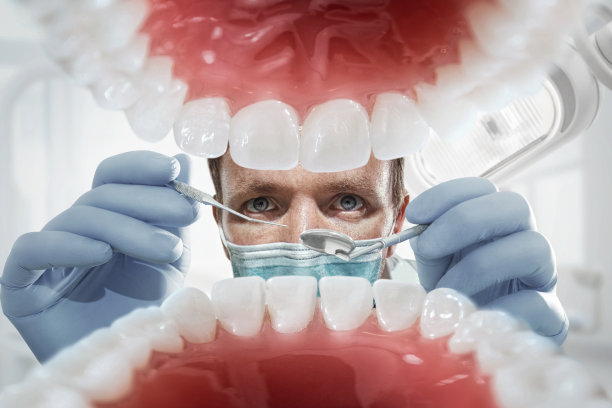Summary: When preparing for a dental filling appointment, its vital to take essential precautions to ensure optimal oral health care. This article discusses four key aspects: understanding the procedure, managing pre-appointment anxiety, post-appointment care, and the importance of follow-up visits. Each aspect provides insights and guidelines that help you navigate the dental filling process with confidence. By being well-prepared and following the recommended practices, you can enhance your dental health, minimize discomfort, and foster a positive experience at the dentist. Taking these steps will ultimately contribute to the longevity of your dental work and your overall well-being.
1. Understanding the Dental Filling Procedure

Before your dental filling appointment, it is crucial to understand what the procedure entails. Knowing what to expect will alleviate much of the anxiety associated with dental visits. A dental filling typically involves the dentist removing decayed tooth material and filling the cavity with a suitable material, such as resin, gold, or amalgam. Taking the time to research these steps can help you feel more informed and relaxed.
In addition to the basic procedure, familiarize yourself with the tools and materials the dentist will use. Many modern dental fillings are made from composite materials that blend seamlessly with your natural teeth, making them more aesthetic than traditional silver fillings. Understanding these options gives you a sense of control over your treatment plan.
Don’t hesitate to ask your dentist any questions you might have. Clarifying your doubts ahead of time can further ease your stress and enhance your confidence during the appointment. Knowledge is a powerful tool in managing dental anxiety.
2. Managing Pre-Appointment Anxiety
Many individuals experience anxiety before a dental appointment, particularly when it involves a procedure like a filling. Managing this anxiety is essential for a smooth experience. Start by practicing relaxation techniques, such as deep breathing or meditation, leading up to your appointment. These methods can help calm your mind and reduce stress.
It may also be helpful to talk about your feelings with friends or family who have undergone similar procedures. Sharing experiences and advice can help normalize your feelings and make the prospect of your appointment less daunting. Some dental offices even offer sedation options, so inquire if this could make your procedure more comfortable.
Lastly, prepare a distraction for yourself, like music or a stress ball, which you can use during the procedure. Focusing on something else can significantly reduce feelings of anxiety and help you feel more at ease in the dentists chair.
3. Post-Appointment Care Essentials
Post-procedure care is as crucial as preparation and engagement during your dental filling appointment. After getting a filling, avoid eating or drinking anything for at least an hour if you received local anesthesia. This precaution helps prevent accidental injury to your tongue or cheeks.
When you resume eating, stick to soft foods for the first 24 hours. Hard, chewy, or sticky foods can dislodge the filling or cause discomfort while you are still getting used to the new material in your mouth. Additionally, soft foods can minimize the pressure on your teeth, allowing for a smoother recovery.
Pay attention to any discomfort or sensitivity following the filling. It’s normal to experience some sensitivity to temperature changes, but if it persists or worsens, contact your dentist for advice. Monitoring your recovery can ensure that all is well with your new filling and can prevent bigger issues down the line.
4. Importance of Follow-Up Visits
Follow-up visits play a critical role in maintaining optimal oral health after your filling appointment. These visits allow your dentist to check the integrity of your filling and ensure that there are no underlying issues that need addressing. Schedule your follow-up as recommended; typically, this will occur a few weeks after the initial filling.
During these visits, discuss any concerns you may have noticed since the procedure, such as changes in sensitivity or discomfort. Your dentist can make adjustments if necessary, ensuring that the filling fits correctly and does not interfere with your bite.
Lastly, incorporate regular dental check-ups into your routine. A proactive approach to dental care helps prevent future cavities and ensures that any potential issues are detected early. This practice not only maintains your new filling but also contributes to your overall oral health and well-being.
Summary:
In summary, proper preparations before and after your dental filling appointment significantly influence your oral health experience. Understanding the procedure helps alleviate anxiety, while learning how to manage pre-appointment stress can make a difference in your comfort level during the visit. Post-appointment care and follow-up visits are essential for monitoring your recovery and ensuring the longevity of your filling. By following these guidelines, you set yourself on the path to improved dental health.
This article is compiled by Vickong Dental and the content is for reference only.
Vickong Dental
Vickong Dental is a large medical group established in Hong Kong in 2008 by professors from well-known medical universities in Guangdong and Hong Kong, as well as medical doctors from key national '985' universities (including Master's supervisors and senior professors). The chain of branches brings together expert dentists with PhDs and Master's degrees from Hong Kong and Mainland China, committed to providing high-quality dental treatment.
"Vickong Dental Practices the University Motto of 'Healing and Serving Society,' with a Stable Operation for Sixteen Years. It Has Been honored with Hong Kong Enterprise Leaders's Choice,' and is a Global Trusted Implant Center for the Nobel Implant System. Recommended by Hong Kong Metro Broadcast and Guangdong Television, it Serves Customers from Over Thirty Countries and Regions, Gaining the Trust and Favor of Citizens from the Guangdong-Hong Kong-Macau Greater Bay Area and Surrounding Cities.

Thousands of customers' unanimous praise
The most recognized and highly recommended dental service by customers in the Guangdong-Hong Kong-Macau Greater Bay Area
We Ensure You Receive Detailed Care and Attention Here
Hong Kong standards, Shenzhen prices, Your Trusted English-speaking dentists

Vickong Dental Medical-Grade Instrument Disinfection Process
Vickong Dental Medical-Grade Instrument Disinfection Process

Vickong Dental Chain: A Warm and Comfortable Environment for Treatment






Appointment Hours

Q&A
Why choose Vickong Dental?
Vickong Dental practices the university motto 「Medicine to Benefit Society」, with each branch bringing together highly qualified dentists with doctoral and master’s degrees from Hong Kong and the Mainland, and has maintained seventeen years of steady operation。Recipient of 「2024 Hong Kong Enterprise Leaders Brand」, 「2025 Hong Kong Enterprise Leaders Brand」, a Nobel Biocare Global Trusted Implant Center, and a brand recommended by Metro Radio Hong Kong and Guangdong TV。
To date, we have served customers from more than thirty countries and regions,earning exceptionally high word-of-mouth recognition and trusted recommendations from residents across the Guangdong-Hong Kong-Macao Greater Bay Area and surrounding cities
We have eight major branches in Zhuhai、Shenzhen,and a consultation and service assurance center in Hong Kong,so you can book a free consultation at any time for any questions,which is very reassuring.
If I do not accept the quotation after the CT scan, will I be charged??
No! As long as the actual treatment has not started, you will not be charged any fees.
Will there be any additional charges during the treatment process?
No, there won’t be any additional charges. Before treatment begins, we will clearly explain the treatment plan and its corresponding fees. Only after the patient agrees and signs the consent form will we proceed with the dental service.
Can I pay in Hong Kong dollars?
Yes. Vickong Dental accepts payment in Hong Kong dollars. The amount will be converted based on the exchange rate of the day, and the applicable rate will be clearly communicated to you in advance.
Can I reschedule my appointment at any time?
Yes. Please contact us via **WeChat** or **WhatsApp** as early as possible, providing your original appointment time and details, along with your preferred new date and time slot for rescheduling.













